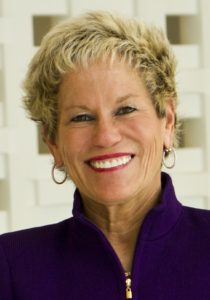
Lori Cohen, chair, pharmaceutical, medical device and healthcare litigation practice, Greenberg Traurig [Image from Greenberg Traurig]
Having more top women leaders isn’t just about diversity for diversity’s sake, Cohen recently told Medical Design & Outsourcing. It’s about having leadership that reflects the overall society and makes the most of the powerful, effective leadership skills that women bring to the table.
Cohen has watched the medical device industry evolve firsthand: She’s been in the medtech products liability business for nearly 25 years. One of the most known ongoing litigations in medtech is the vaginal mesh litigation, which Cohen has been involved in for almost six years. The case started out small and has grown to become “enormously large,” she said.
“It’s probably the largest case in the history of the multi-district litigation in the United States. At one point for all companies, there were over 200,000 cases,” Cohen said.
There are a number of legal cases that are currently ongoing in the medtech industry. From medical device patents to class action suits to SEC troubles, the litigations can get interesting, but are all unique in their own ways, Cohen said.
MDO: What first drew you to medtech? When did you first know you wanted to be in the industry?
Cohen: I was attracted to the medtech industry and product liability in the 1990s. The overlap of medicine, science and law was fascinating to me, and as a young litigator, I was drawn to challenging, highly technical cases. I was also drawn to the human element that plays such a key role in medtech product liability matters, which differs from commercial litigation where companies are often battling over money. Knowing that my work directly impacts people and their quality of life is very rewarding. The industry is rapidly evolving with new innovations every day that improve and save lives, and I am honored to be a part of such an important and dynamic industry.
MDO: What are some of the barriers women face in today’s medtech industry, if any?
Cohen: Women have certainly made significant strides in workplace equality, but those advancements have taken place at the entry level and middle management. As you climb the corporate ladder, the proportion of women tapers off – drastically at the highest level. There are still very few women in what we would call C-suite roles or executive positions. And the very top – the chief executive – is still almost entirely reserved for men. There were only 32 female CEOs of Fortune 500 companies in 2017, and that number dropped to 24, as if companies are getting comfortable with diversity at the bottom but not so much at the top. This is why it is critical that women hold leadership roles and make key decisions on behalf of corporations and firms. Even in the medtech industry, I am always urging companies “walk the walk” when it comes to diversity at the top.
MDO: Describe your biggest leadership challenge. How did you conquer it or resolve it, or what was the outcome?
Cohen: One of the biggest leadership challenges is finding the appropriate balance between guiding your team to do the right and best thing to meet firm and client standards, while still providing them the space and freedom to evolve, grow and develop their own individual styles. Another important piece is understanding that what motivates one person may and likely will not motivate another. A critical component to leading is recognizing that, to lead well, you must lead differently for different individuals. This can be challenging because it takes time: You have to care enough about your people that you focus on each one individually and not expect everyone to be motivated by the same approaches.
MDO: Talk about your leadership skills. What is the most important lesson you have learned that has guided you in your career?
Cohen: I am a huge believer in leading by example. I would never expect anyone on my team to do anything more than I am willing to do. I try to show them what I believe it takes to be successful, client motivated and goal driven, but ultimately, it’s up to them. This is the essence of leadership—you can be a great mentor and strive to set a great example, but in the end, each individual must forge their own unique path and be their own best advocate.
On my team, it is important for everyone to recognize that there are no hierarchies—everyone is important, everyone’s opinion matters, and everyone has a voice and should be included in team meetings, events, client meetings, and celebrations together. I also strongly believe that loyalty knows no bounds. I would walk through fire in terms of my own loyalty for those who are committed to my vision, dream, and long-term goals for our team.
MDO: In your opinion, what more can be done to promote greater participation of young women in the medtech industry today?
Cohen: Only about a quarter of women serve as lead counsel or trial attorneys, according to the American Bar Association, and less than 20 percent are equity partners (source: Law360 Glass Ceiling Report). I make every effort to create and foster opportunities for women and help develop the next generation of outstanding female attorneys. I want them to have the same and even better opportunities than I did. My rule of thumb is if someone Is energized, interested, or enthusiastic about something I would never say “no” to them. I encourage and foster all opportunities and try to get my entire team—not just the women—involved in key opportunities and roles.
It’s important for female lawyers to have mentors, training opportunities, chances to participate in business development activities, and opportunities to work on high-profile “bet-the-company” cases. I work to get young female attorneys into the courtroom early for trials, often working out arrangements with clients so as to allow for these attorneys to participate. I look for those opportunities early, bring them in to participate in client pitches, and make sure no one is left in the office for too long. This way they hit the ground running and know that what they are doing is real and meaningful. Developing your team goes a very, very long way. I do this by introducing them early on to leaders in the field, including important clients, and involve them in understanding the industry and the impact and meaning of it for improving lives, for saving lives and for the greater public good.
MDO: What career advice would you give to your younger self?
Cohen: Surround yourself with stellar, motivated, committed people who are team players. You don’t have to build a team of clones but rather a robust team who is just as committed, excited and dedicated to what you are building. The team is only as strong as the individuals; it requires people who care about the good of the team, and the overall vision and concept, not just their own self-interest. (And I would probably tell myself to take more exotic vacations when time wasn’t quite so precious!)
Why is it important for companies to be more inclusive and have more women in charge?
Cohen: Our world is more than 50% female. That means more than half of our judges, our jurors, and certainly our court of public perception are women. Our teams and clients need to mirror the modern world, including potential jurors. This is about more than just diversity for the sake of diversity; women are powerful, effective leaders who should be making decisions up through the top ranks of every company. Developing more diverse and inclusive companies at all levels, not just at the entry or mid-level stages, will lay the groundwork for better, more well-rounded decisions reflective of society and how the public will view and perceive things.




